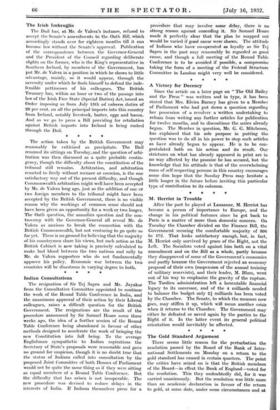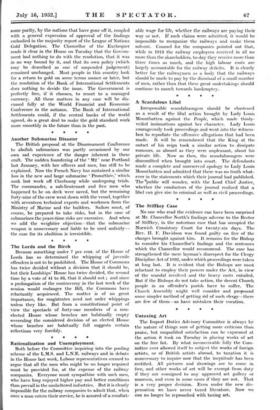The Gold Standard Argument There seems little reason for the
perturbation the resolution passed by the Board of the Bank of Inter- national Settlements on Monday on a return to the gold standard has caused in certain quarters. The point the critics have seized on is that the British members of the Board—in effect the Bank of England—voted for the resolution. This they undoubtedly did, for it was carried unanimously. But the resolution was little more than an academic declaration in favour of the return to gold, at some date, under some circumstances and at some parity, by the nations that have gone off it, coupled with a general expression of approval of the findings embodied in the majority report of the League of Nations Gold Delegation. The Chancellor of the Exchequer made it clear in the House on Tuesday that the Govern- ment had nothing to do with the resolution, that it was in no way bound by it, and that its own policy (which may be described as one of suspended judgement) remained unchanged. Most people in this country look for a return to gold on some terms sooner or later, but the resolution of the Bank of International Settlements does nothing to decide the issue. The Government is perfectly free, if it chooses, to resort to a managed currency. All these matters in any case will be dis- cussed fully at the World Financial and Economic Conference in the autumn. The Bank of International Settlements could, if the central banks of the world agreed, do a great deal to make the gold standard work more smoothly in the future than in the past.
* * * *



































 Previous page
Previous page